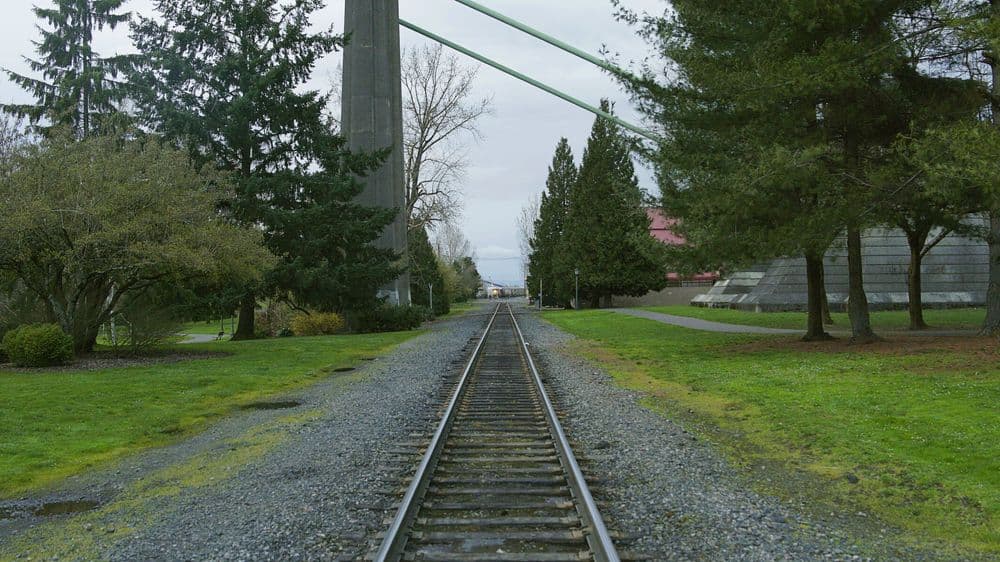Not Planes or Automobiles
John Dos Passos, ridin' the rails
May 9, 2023

“I ain’t exactly on the bum, you know. I want to see the world.”
“I guess I’m going to have to see the world now,” said Fainy.
—John Dos Passos, The 42nd ParallelI just finished The 42nd Parallel by John Dos Passos, the first entry in his U.S.A. trilogy. The book is excellent and I’m excited to continue with the series, which I’ll likely return to later this year. It employs modernist techniques you’d expect from the era—apparently Faulkner was a fan—as well as some forward-looking ones: an interweaving large cast of characters, collages (or cut-ups wink) made of song lyrics and newspaper clippings, and biographies of real figures who occasionally interact with the fictional characters, all very much my shit. Its plot takes place in an era I had liked to know more about—late-19th into early-20th century United States, a time of industrialization and corresponding labor disputes, revolutions abroad, and the brewing of a new type of war the characters are clearly not prepared for, the results of which are coming in the next section.
The early part of 42nd Parallel, which closely follows Mac—real name Fenian McCreary (come ON!)—is particularly concerned with “ridin’ the rails” as it were. Mac’s early life is a volume of fuckups despite his constant good intentions. Whenever he runs out of cash, which happens frequently, his fallback is always to bum it on a train, sleeping in an empty freight car and hoping not to get caught by an overzealous conductor. We see him travel from Chicago to North Dakota, up to the woods of Canada, over to Vancouver, B.C., back down into Seattle and San Francisco. After attempting and failing at a domestic life, he returns to the rails, bumming it all the way to Mexico City looking for the revolution.
Despite the miserable conditions described in the book—starving nights, freezing cold winds, sleeping vibrating wooden boards—I couldn’t help but feel a bit jealous of Mac at times. He was seeing the country, meeting interesting people, taking real risks, and doing it almost for free. It’s unfortunate that the Beats and subsequent bumper-sticker valorizations of “wanderlust” stained such carefree roaming for decades to come, generally obscuring the true cost of such things. The people who did this were broke and constantly at the whims of whoever happened to find them. In one scene, a conductor robs Mac and his friend of most of their money as a fare while threatening to call the cops, and then doesn’t take them to their destination. Several times throughout Mac’s journey, only luck saves him from dire consequences, contrasted in one scene by the misfortunes of a sick old man in one of the cars who speaks of living his whole life broke on the rails before dying right in front of Mac. Still, though, I can’t help feeling a fondness for these journeys.
Trains seem to be having a moment in the popular imagination as well: Twitter progressives of the data-nerd fashion just love posting that map of a proposed high speed rail system connecting all major cities across the US. Who can blame them? Our current transportation system heavily favors the most expensive and least environmentally-friendly forms of long-range travel.
Flying in particular has become a Kafkaesque nightmare in recent years: as prices increase and legroom decreases at a rapid pace, the frailties of the system are continually exposed in the form of constant delays and cancellations—another one of the many ways life gets gradually worse as the agents of capitalism continue wringing the final dollars out of an empire in decline. There seems to be a tacit acceptance on the parts of both proprietor and consumer that flying is now something meant to be endured rather than enjoyed. Passengers are corralled into their seats, given a cheap soda and snack, directed toward a screen a foot in front of their face as the lights are dimmed and the tiny windows closed, and encouraged to find an awkward position in which to sleep or kill the time watching a Marvel movie. While you’re flying! Through the air! Like one of the guardian owls of legend! Contrast that with even the current state of rail travel: big windows that allow you to see the landscape going by, cabins (if you can afford them) in which to stretch out a bit (I don’t actually know this for sure, but the pictures seem nice), and the tiniest peace of mind that this trip contributed a bit less carbon to the atmosphere (although those planes will still fly with or without you, very cool).
But the main thing I’ve been thinking about with regards to train travel, something Dos Passos captures well in 42nd Parallel, is the in-between places that would otherwise go overlooked—literally flown over. If there are stations in between your departure point and your final destination, and there always are, you can simply get off and look around if you’d like, given another train is coming relatively soon. Whereas with air travel, a passenger would more gladly submit to torture than exit the security area. It’s a big, interesting country, and yet, we’re never encouraged to see any of it or to interact with all those people, living out their lives in between major metropolitan areas.
I guess all of this is to say I’m thinking of trains lately. While our rail system isn’t anywhere near what it could be, Amtrak still offers some interesting options to watch the country go by and have a look around once in a while. Hopefully I’ll get the opportunity to do so soon.